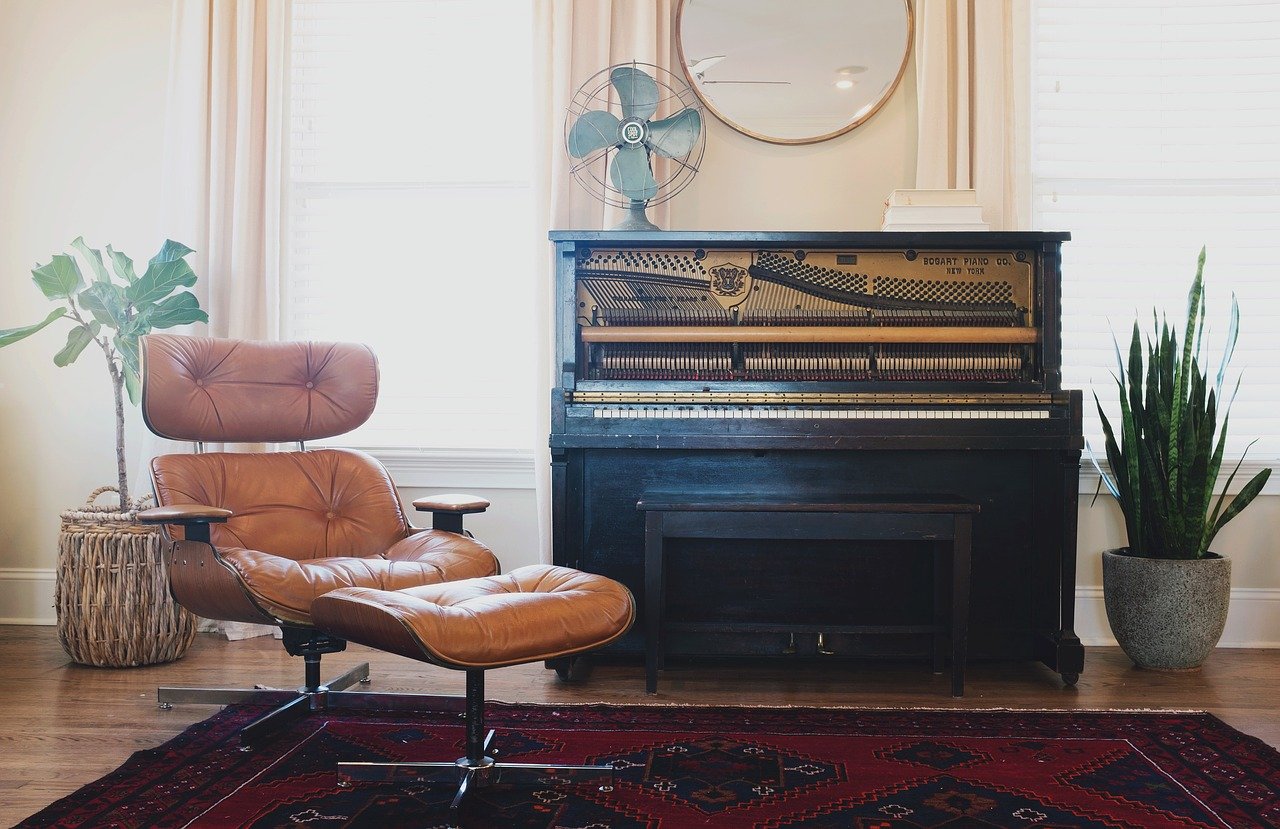Upright piano placement can be an issue to consider whether you are playing an acoustic or a digital piano. If you’re new to the piano or you haven’t had one at home before you might think that the placement of your piano is pretty trivial, but actually it can be very important.
Not only does the placement have a huge impact on the sound that is generated and how it is projected, but it can also extend the lifespan of your piano. This is to say that if you place your digital piano in the wrong area, you can damage it. This is catastrophic, especially if you’ve spent a lot of money on your instrument.
If you’re short of space then you might find yourself searching for piano placement tips, to allow you to get the most out of your space, and that you don’t use half of your apartment space on a piano.
In this article, we’re looking at the dos and don’ts of upright piano placement. We’re ignoring grand piano placement for now, as these can be a bit more complex, they take up a lot of space and aren’t as easy to place within your home, especially if you don’t have a big house.
Upright Piano Placement – What Not To Do
There are some things that it is absolutely essential to avoid when you are placing your piano, in many ways, these are more important than the things we recommend doing!
Don’t place your piano in direct sunlight. If it is in sunlight all the time or for a large portion of the day then it can start to warp and the wood can start to dry out. This has a big impact on the sound and can even damage the piano. Better quality woods are safer, but none are 100% safe.
Similarly, think about where it is in relation to a window. Just a few hours light a day can be enough to start to damage or warp the piano. Try to keep it out of direct sunlight as much as you possibly can. If you have a little nook in your room you can use, this may be the best place for you to undergo your piano lessons or online tutorials.
Don’t place near heating vents or air conditioners. This is another thing that can damage wood. Constant changing of heat can be a real issue and lead to warping, impacting upon the sound and look of your piano, plus any resale value in the future.
Have a digital piano? If it is on a console or furniture stand, the same still applies, and for the sake of the electronics it is also important to avoid any sort of extreme temperatures.
Upright Piano Placement – What You Should Do
So, we’ve gone through what not to do, but what should you do when looking to find the best placement?
Keep it near a wall. Most people think this looks best, and we usually agree, but the main benefit is that a wall can help to regulate the temperature so you don’t end up with extreme changes up and down in temperature. If the temperature increases or decreases it can warp the materials. This can even impact the sound.
Another thing you should do is experiment a little with the acoustics of the room and the piano. This is hard to give specific advice on as each room has its own acoustic properties, but there is every chance it will sound better in one part of the room, rather than another. The projection may be better, and there may be less to soak up the sound, meaning a lovely natural reverb.
There’s nothing wrong with moving your piano around a little to find the ideal spot, but remember that these instruments are sensitive, and it is not a case of just being able to put it wherever is convenient, especially if you have an acoustic piano.
Conclusion – Placing Your Upright Piano
This is one of the aspects of piano that is totally up to personal preference, but as our guide shows, there are plenty of considerations. You can actually extend the life of your piano and get a better quality sound by thinking clearly about the placement.
FAQs
Is it OK to put a piano in front of a window?
We strongly recommend not putting your piano in front of a window as the sunlight and temperature changes this can cause may dry out the soundboard and cause warping and damage to other parts of the piano.
Should piano be placed on carpet?
Ideally, piano shouldn’t be placed on carpet, it should be placed on a wooden floor which can help with the projection and acoustics. In an apartment though, we understand this isn’t always possible, and it doesn’t make a huge difference. If you have a digital upright piano, it makes no difference at all.
Why should a piano be on an inside wall?
The inside wall can help with projection but it also provides protection regarding temperature changes and also helps to keep the piano away from direct sunlight which can potentially cause damage.










